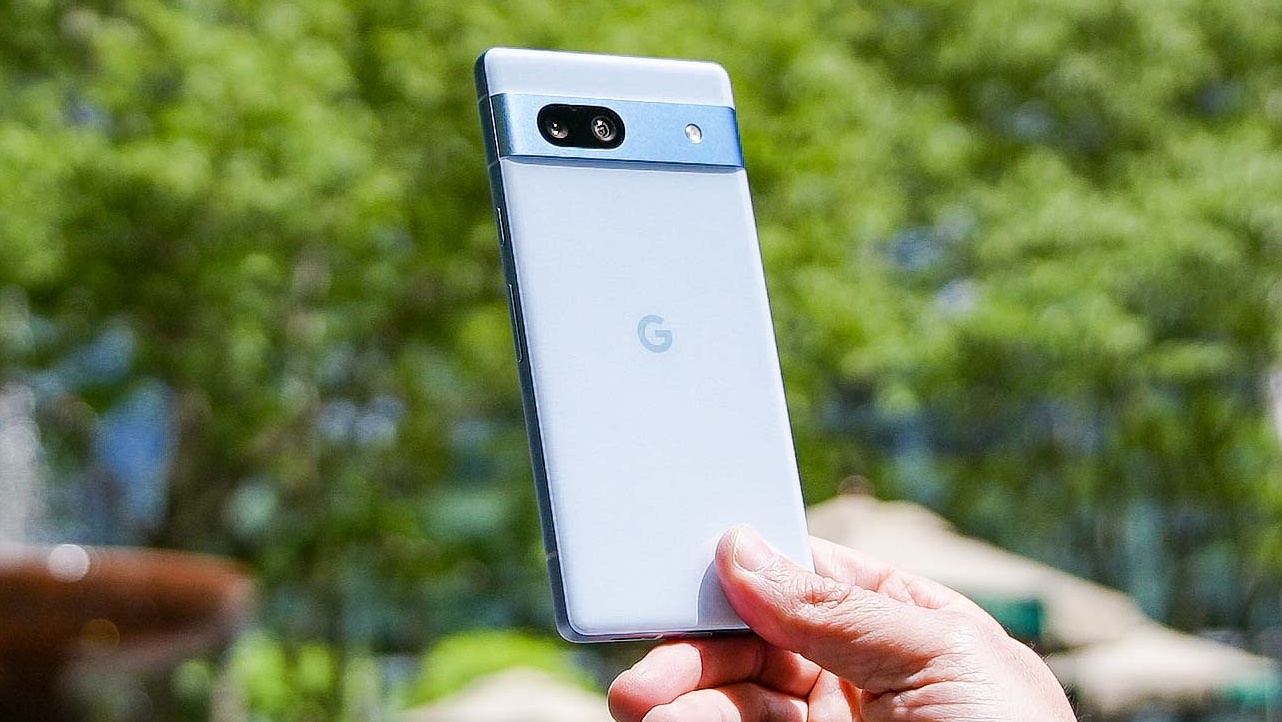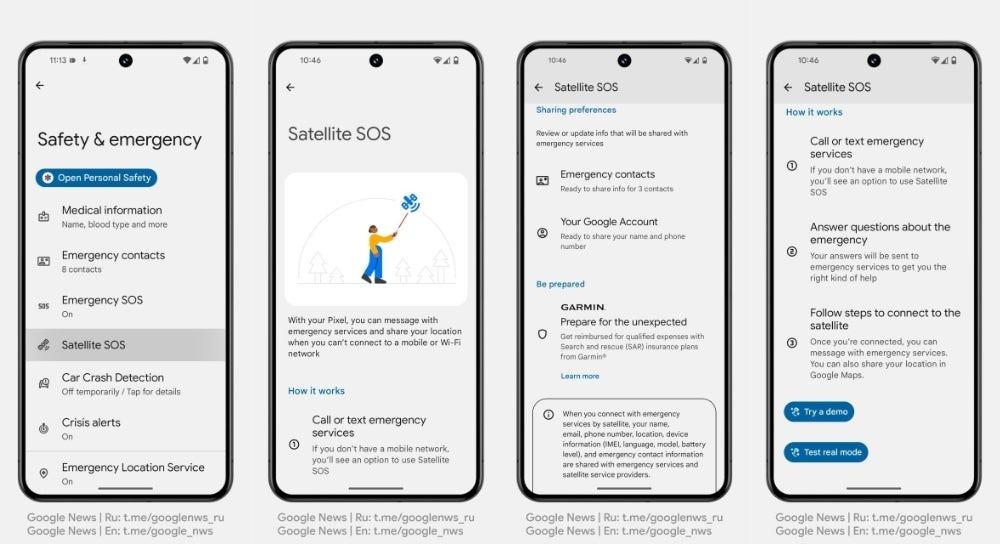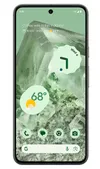Your Google Pixel phone may soon get this lifesaving iPhone feature
Satellite SOS setting spotted on Pixel phones

Android phone makers have been working on a rival to the iPhone's Emergency SOS via satellite feature since Apple introduced it starting with the iPhone 14. Now thanks to some eagle-eyed Pixel users, we have reason to believe Google could be bringing the life-saving feature to its Pixel phones very soon.
As spotted by 9to5Google this week, a new “Satellite SOS” option now appears between Emergency SOS and Car Crash Detection in the Safety & emergency settings on Pixel phones. We've confirmed it for ourselves on both a Google Pixel 8 and Pixel 7a.
For those unaware, Apple's Emergency SOS via Satellite feature is, as the name suggests, intended for emergency usage as a method of broadcasting a user's location to emergency services when an active cellular or Wi-Fi connection isn't available. Essentially, it lets your phone make a call for help by connecting to satellite instead of a cell tower. It's a feature that's already been credited with saving a few lives when iPhone users have become stranded in areas where there was no cellular coverage.
As for Google's potential rival on Pixel phones, right now if you tap the Satellite SOS option, nothing happens. It's as if Google accidentally pushed out the menu option before the feature was ready to go live. Whatever the reason, it's clear the search giant is preparing to add satellite connectivity to the Pixel series at some point — and likely in the near future.
When the team at 9to5Google dug a bit deeper, they uncovered some more screens in the Pixel's code that appeared tied to the Satellite SOS feature. Through a rooted phone, the team was able to access a potential menu for the feature that included the following text: "With your Pixel, you can message with emergency services and share your location when you can’t connect to a mobile or Wi-Fi network."
Another portion of text at the bottom of the page goes into more detail: "When you connect with emergency services by satellite, your name, email, phone number, location, device information (IMEI, language, model, battery level), and emergency information are share with emergency services and satellite service providers."
The Google News channel on Telegram also shared screenshots, which you can check out below.
Sign up to get the BEST of Tom's Guide direct to your inbox.
Get instant access to breaking news, the hottest reviews, great deals and helpful tips.

From the looks of it, users will be able to customize their emergency contacts and set up automatic alerts in case of an emergency. The privacy disclaimer states that your name, email, phone number, location, emergency contacts, and device information will be shared with both emergency services and satellite service providers if Satellite SOS is enabled.
The page contains options to "Try a demo" or "Test real mode" that aren't currently working as well as a link out to a (not yet live) Google support page regarding what countries are supported by Satellite SOS. There’s also a link to a Garmin Search and Rescue Insurance plan, implying that Google could partner with Garmin, whose sprawling network covers over 150 countries across all continents, for search and rescue and global emergency response coverage.
Exactly when Google plans to roll this functionality out to users remains to be seen. Similarly unclear is whether Satellite SOS will be limited to Pixel handsets or available across all the best Android phones. But the fact that Google already has the shortcut live is a good sign that we may not have long to wait.
More from Tom's Guide
- Google Search just stole one of the Pixel’s best features — and it will save you a ton of time
- 5 ways Google Pixel 8a can beat the OnePlus 12R
- Google just bought this fan-favorite feature back to Pixel phones — but Pixel 8 is missing out

Alyse Stanley is a news editor at Tom’s Guide, overseeing weekend coverage and writing about the latest in tech, gaming, and entertainment. Before Tom’s Guide, Alyse worked as an editor for the Washington Post’s sunsetted video game section, Launcher. She previously led Gizmodo’s weekend news desk and has written game reviews and features for outlets like Polygon, Unwinnable, and Rock, Paper, Shotgun. She’s a big fan of horror movies, cartoons, and roller skating.









